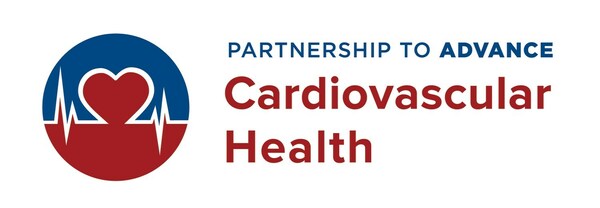New Report Raises Key Questions About the Inflation Reduction Act Impact on Cardiovascular Drug Development
31 Oct 2023
Unintended consequences, the Partnership to Advance Cardiovascular Health says, could reduce care quality for patients and unnecessarily constrain cardiologists.
WASHINGTON, Oct. 31, 2023 /PRNewswire/ -- A new paper by Avalere Health indicates that lifecycle pressures put in place by the Inflation Reduction Act could uniquely impact cardiovascular drug development. These pressures may create outsized disincentives for therapies that treat America's #1 killer.
Continue Reading

Preview
Source: PRNewswire
Partnership to Advance Cardiovascular Health
The paper emerges at a crucial time. In late August of this year, the Centers for Medicare & Medicaid Services announced the first 10 drugs it will negotiate as part of the IRA-authorized drug pricing program. Notably, 5 of the 10 medications are for cardiovascular conditions. Negotiations for these medications, which recently got underway, will be held for one year and are expected to conclude next Fall.
Patient and provider advocates, however, have concerns. Particularly, there is concern about how price negotiations could affect investment incentives and drug development timelines – and what these could mean for bringing new breakthrough therapies to market. For cardiovascular patients, price negotiations could uniquely impact cardiovascular drug development and the types of treatments available to patients, Avalere's paper indicates.
Developing drugs to treat cardiovascular disease is uniquely expensive and risky.
By comparing the development process for cardiovascular drugs to other chronic disease states, the paper highlights unique aspects of cardiovascular drug development, which in turn emphasizes how much more precarious the lifecycle is for cardiovascular medications.
The paper finds that cardiovascular drug trials:
Demand nearly two times more patients.
Demand nearly 50% more clinical sites.
Have lower likelihood of trial success rates from Phase I through FDA approval.
And take longer to conduct Phase III trials than trials for other drugs.
Because the size of cardiovascular drug trials is typically larger and more complex, they may require more resources to conduct, the paper concludes.
"Though there are some positive aspects of the IRA, I am concerned that, on balance, the law will restrict patient access to life saving medications and stall vital innovation in drug development," cardiologist Seth Baum, MD, remarked. "Cardiovascular medicine," he continued, "is particularly vulnerable to the IRA… I fear that the millions of patients, especially the elderly, will have worse, not better, access to innovative therapies."
The IRA could tip the cost-benefit scales unfavorably for research into cardiovascular drugs.
Because of price negotiations, incentives for developers of cardiovascular drugs might change, the paper suggests. This could lead developers to:
Choose to not pursue additional indications for drugs.
Shift research and development resources away from small-molecule drugs, which comprise the overwhelming majority of cardiovascular medications, to biologics.
Should price negotiation hinder research into treatment innovations, it could limit treatment options for patients. Such disincentives could have unintended yet disadvantageous effects on cardiovascular health in the U.S.
Cardiovascular patients' health outcomes may suffer.
Already, more than one in five deaths each year in the U.S. are attributable to cardiovascular disease – making it America's #1 killer. Further constraining treatment options for cardiovascular disease could exacerbate this situation, advocates worry.
"Research in this report beckons a deeper conversation on the IRA's potential implications for cardiovascular drug development and how that will shape the future of cardiovascular health care," Dharmesh Patel, MD, PACH president, said. "Stakeholders across the health care spectrum," he urged, "should engage with these findings and policymakers to shape the future of cardiovascular health care for the better."
Read the paper in full here.
About PACH: The Partnership to Advance Cardiovascular Health works to advance public policies and practices that result in accelerated innovation and improved cardiovascular health for heart patients around the world.
SOURCE Partnership to Advance Cardiovascular Health
For more details,please visit the original website
The content of the article does not represent any opinions of Synapse and its affiliated companies. If there is any copyright infringement or error, please contact us, and we will deal with it within 24 hours.
Organizations
Indications
Targets
-Drugs
-Hot reports
Get started for free today!
Accelerate Strategic R&D decision making with Synapse, PatSnap’s AI-powered Connected Innovation Intelligence Platform Built for Life Sciences Professionals.
Start your data trial now!
Synapse data is also accessible to external entities via APIs or data packages. Leverages most recent intelligence information, enabling fullest potential.


